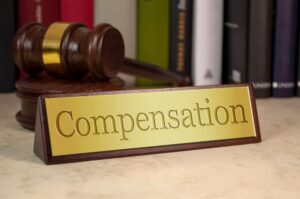How Much Does a Lawyer Cost for a Car Accident?
How Much Does a Lawyer Cost for a Car Accident?
If you suffered injuries in a car accident that someone else caused, you need to retain an experienced personal injury lawyer for representation as soon as possible. Since most personal injury attorneys operate on a contingency fee basis, you will not pay your lawyer a fee until they recover monetary compensation for your injuries. In that case, the fee will typically be a portion of your gross recovery.
A skilled personal injury attorney will clearly explain their contingency fee agreement and answer all your questions. They can then enter an appearance in your case and begin aggressively advocating for the financial compensation you deserve.
Schedule a Free Initial Consultation
Common Injuries That Car Accident Victims Suffer
 Car crashes can result in a range of physical and mental injuries, impacting victims in various ways. Among the most common physical injuries are whiplash, caused by the rapid back-and-forth motion of the neck upon impact, and fractures, often occurring in limbs due to the force of the collision. Head injuries, ranging from concussions to traumatic brain injuries, are also prevalent and can have long-term consequences.
Car crashes can result in a range of physical and mental injuries, impacting victims in various ways. Among the most common physical injuries are whiplash, caused by the rapid back-and-forth motion of the neck upon impact, and fractures, often occurring in limbs due to the force of the collision. Head injuries, ranging from concussions to traumatic brain injuries, are also prevalent and can have long-term consequences.
Moreover, internal injuries may occur, affecting organs such as the spleen, liver, or lungs, often requiring immediate medical attention. Soft tissue injuries, like bruises, sprains, and strains, can manifest throughout the body due to abrupt movements during a collision.
On the mental health front, car crashes can induce a spectrum of psychological distress. Post-traumatic stress disorder (PTSD) may develop, causing persistent anxiety and intrusive memories of the traumatic event. Depression and anxiety disorders can also emerge as individuals grapple with the aftermath of the crash.
In addition, the emotional toll extends to survivors’ families and friends, who may experience secondary trauma. The severity of these injuries can vary, and recovery often necessitates a combination of medical treatment, rehabilitation, and psychological support. Overall, the aftermath of a car crash involves not only visible physical injuries but also less apparent yet equally impactful mental and emotional scars.
Types of Car Accidents That Cause Injuries
Car accidents can result in various injuries, ranging from minor to severe. The type and extent of injuries often depend on the specific circumstances of the accident. Here are common types of car accidents that cause injuries:
- Rear-end Collision — These occur when one vehicle strikes another from behind. Injuries often include whiplash, neck and back injuries, and head trauma due to the sudden backward and forward motion of the occupants.
- Side-impact Collisions (T-bone Accidents) — These accidents happen when the front of one vehicle collides with the side of another. Injuries may include chest and abdominal trauma, fractures, and head injuries, especially if the impact occurs on the side where the occupant is sitting.
- Head-on Collisions — These accidents involve the front ends of two vehicles colliding. Injuries can be severe and include traumatic brain injuries (TBIs), spinal cord injuries, fractures, and internal organ damage.
- Single Vehicle Accidents — When a car crashes without involving another vehicle, occupants may still sustain injuries. This can happen in rollovers, skidding off the road, or hitting a fixed object. Injuries may range from minor cuts and bruises to more severe injuries, depending on the nature of the crash.
- Multi-vehicle Pileups — These collisions involve multiple vehicles and often occur in high-traffic areas. Injuries can be varied and may include a combination of whiplash, fractures, and contusions, depending on the force and angles of impact.
- Sideswipe Accidents — In these incidents, the sides of two vehicles come into contact. Injuries can range from minor bruising to more severe injuries if the impact leads to a loss of control or subsequent collisions.
- Rollover Accidents — Vehicles can overturn during accidents, leading to injuries such as head and neck trauma, fractures, and spinal injuries. Rollovers are particularly associated with SUVs and trucks due to their higher center of gravity.
- Intersection Accidents — Accidents at intersections can result in various injuries, depending on the type of collision. T-bone collisions, rear-end collisions, and sideswipe accidents are common at intersections.
The severity and type of injuries in car accidents can occur by speed, vehicle type, safety features, and whether occupants wear seat belts. Seeking prompt medical attention after any car accident is crucial to assess and address potential injuries.
Common Car Accident Causes
Car accidents resulting in injuries often stem from various factors, including human error or negligence. Understanding these common causes is essential for promoting safer driving practices and implementing preventive measures. Some of the most prevalent causes of car accidents that lead to injuries are as follows:
- Distracted Driving — One of the leading causes of accidents is drivers being distracted by activities such as texting, talking on the phone, adjusting the radio, or using navigation systems. Taking attention away from the road significantly increases the risk of collisions.
- Speeding — Driving at speeds higher than the posted limits or too fast for road conditions reduces reaction time and increases the severity of accidents. Speeding contributes to a significant number of injuries and fatalities on the road.
- Drunk Driving — Operating a vehicle under the influence of alcohol or drugs impairs judgment, coordination, and reaction time. Drunk driving remains a major contributor to serious accidents and injuries.
- Reckless Driving — Aggressive behaviors such as tailgating, weaving between lanes, and ignoring traffic rules can lead to accidents. Reckless driving puts both the driver and others on the road at risk.
- Running Red Lights and Stop Signs — Failing to obey traffic signals and signs can result in intersection accidents, often causing T-bone collisions with severe injuries due to the side impact.
- Weather Conditions — Adverse weather, including rain, snow, ice, and fog, can make roads slippery and reduce visibility. Drivers not adjusting their speed or failing to drive cautiously in such conditions contribute to weather-related accidents.
- Fatigue — Drowsy driving can impair a driver’s ability to focus and react quickly. Fatigue-related accidents are more likely to result in serious injuries due to delayed or inadequate responses.
- Poor Road Conditions — Potholes, uneven surfaces, and poorly maintained roads can contribute to accidents. Inadequate signage and road markings can also lead to confusion among drivers.
- Failure To Yield — Accidents often occur when drivers fail to yield the right-of-way at intersections, merge lanes, or make turns, leading to collisions with other vehicles.
- Vehicle Defects — Mechanical failures, such as brake malfunctions or tire blowouts, can lead to loss of control and accidents. Defective vehicle parts contribute to a small but significant number of accidents.
Addressing these common causes through public awareness, strict law enforcement, and technological advancements can help mitigate the occurrence of car accidents and reduce the associated injuries. Safe driving practices, adherence to traffic laws, and responsible behavior on the road are crucial elements in preventing accidents and promoting overall road safety.
What Is the Cost of a Personal Injury Lawyer?
A lawyer contingency fee agreement in a car accident case is a financial arrangement where the attorney’s fees are contingent upon successfully obtaining compensation
for the client. Here is how it typically works:
- Initial Consultation — The process begins with an initial consultation between the client and the attorney. During this meeting, the attorney evaluates the case’s merits, discusses potential legal strategies, and considers the likelihood of success.
- Agreement Terms — If the attorney agrees to take the case, they present the client with a contingency fee agreement. This document outlines the terms of the arrangement, stating that the attorney will receive compensation upon securing a favorable settlement or winning the case in court.
- Percentage Basis — Typically, contingency fees are structured based on a percentage of the recovered compensation. The amount can vary based on the case’s complexity and jurisdictional regulations.
- No Upfront Costs — One of the primary benefits for clients is that they do not pay any upfront fees or retainers. The attorney takes on the financial risk of handling the case, covering expenses related to the investigation, court filings, expert witnesses, and other necessary costs.
- Reimbursements from Settlements or Judgements — If the attorney successfully resolves the case and obtains compensation for the client through settlement negotiations or a court judgment, they deduct their fees from the awarded amount. The client receives the remaining balance.
- No Fee If No Recovery — If the attorney cannot secure compensation for the client, there is typically no obligation for the client to pay the attorney any fees. This arrangement aligns the attorney’s interests with the client’s, as both benefit from a successful outcome.
- Clear Communication — Attorneys must actively communicate potential fees and additional deductions from the recovery to their clients. Transparency is key to establishing trust and ensuring a clear understanding of the financial arrangement.
Contingency fee agreements make legal representation accessible to individuals who cannot afford upfront legal costs. This model incentivizes attorneys to diligently pursue favorable outcomes, aligning their success with their clients in seeking compensation for car accident injuries and damages.
Recovering Monetary Compensation for Injuries in a Car Crash
 The financial compensation recoverable in a car accident claim or lawsuit varies widely and depends on several factors, including the extent of injuries, property damage, liability, and applicable insurance policies. Predicting specific compensation amounts is challenging, as each case is unique. However, the following factors can influence the amount of financial compensation:
The financial compensation recoverable in a car accident claim or lawsuit varies widely and depends on several factors, including the extent of injuries, property damage, liability, and applicable insurance policies. Predicting specific compensation amounts is challenging, as each case is unique. However, the following factors can influence the amount of financial compensation:
Economic Damages — Economic damages are tangible, quantifiable losses from the accident. This may include medical expenses, property damage, lost income, and future earnings. The compensation sought typically covers the actual financial losses incurred by the victim.
Medical Expenses — Compensation for medical expenses encompasses emergency care, hospitalization, surgeries, medication, rehabilitation, and any other necessary medical treatments. The severity and duration of injuries significantly impact the overall medical expenses.
Lost Wage and Future Earnings — If the accident causes the victim to miss work, they may be entitled to compensation for lost income. Additionally, if the injuries result in a diminished capacity to earn income in the future, this can factor into the total compensation amount.
Property Damage — The cost of repairing or replacing damaged vehicles, personal belongings, or other property is included in the compensation sought. This determination can happen through repair estimates or assessments of fair market value.
Non-economic Damages — Non-economic damages are more subjective and include compensation for intangible losses. These commonly encompass pain and suffering, emotional distress, loss of consortium, and loss of enjoyment of life. Estimating these damages involves complex calculations and the experience of legal professionals.
Punitive Damages — In extreme negligence or intentional misconduct cases, seeking punitive damages aims to punish the at-fault party to punish the at-fault party. However, punitive damages are not always available, and their inclusion depends on the circumstances of the case.
Insurance Policy Limits — The at-fault party’s insurance policy can limit the recoverable compensation amount. If the policy limits are insufficient to cover all damages, the victim may need to explore additional avenues for compensation.
Likability and Comparative Fault — Determining liability affects the compensation amount. Compensation might undergo modifications based on a shared fault if the victim shares some responsibility for the accident. Some states reduce the award proportionally if the injured party is found partially at fault.
Legal Fees and Costs — Legal fees, typically based on a contingency fee arrangement, will also affect the amount the victim receives. Contingency fees are a percentage of the awarded compensation that the attorney collects as their fee.
You should always consult with an experienced personal injury attorney to evaluate the specifics of a car accident case and determine the potential compensation. Legal professionals can navigate the complexities of the legal system, negotiate with insurance companies, and work towards securing fair and comprehensive compensation for the victim.
Speak with an Experienced Car Accident Lawyer About Your Options Today

Greg Bentley, Car Accident Lawyer
Upon suffering injuries in a car accident, you must immediately speak with a knowledgeable personal injury lawyer. Your lawyer will first answer all your questions about their contingency fee agreement and how it works. They can then begin advocating for you by investigating your accident circumstances, negotiating with insurance company representatives on your behalf, or litigating your case to resolve the court system.
Contact a trusted car accident attorney for a free case evaluation. It costs nothing to get the legal representation you need.


